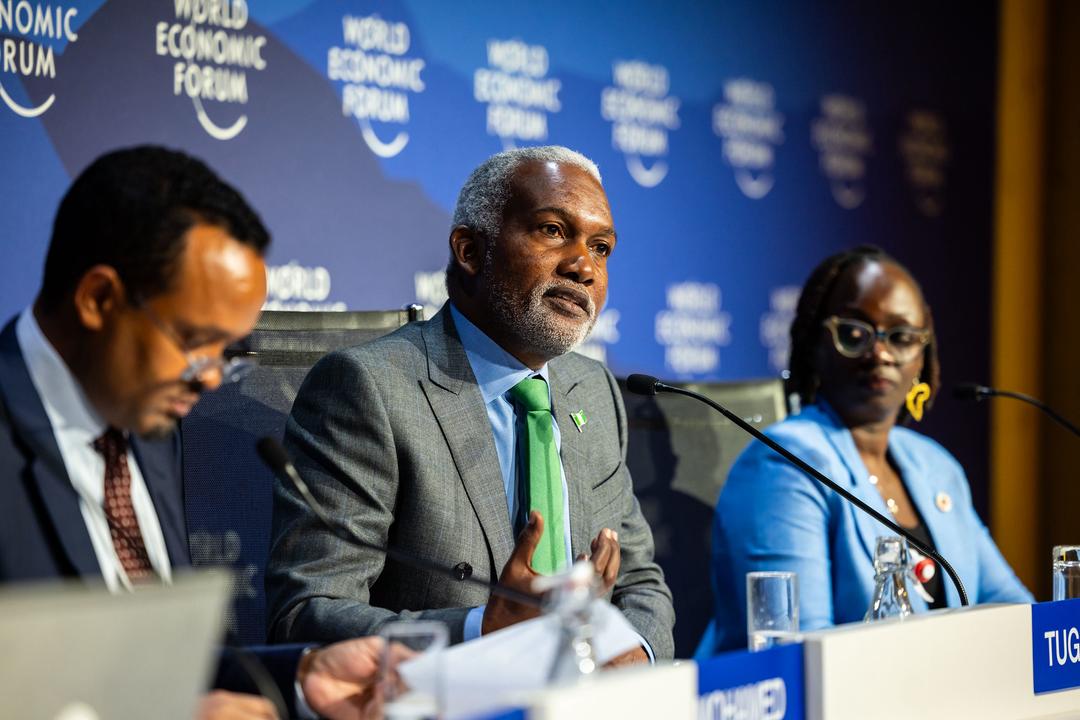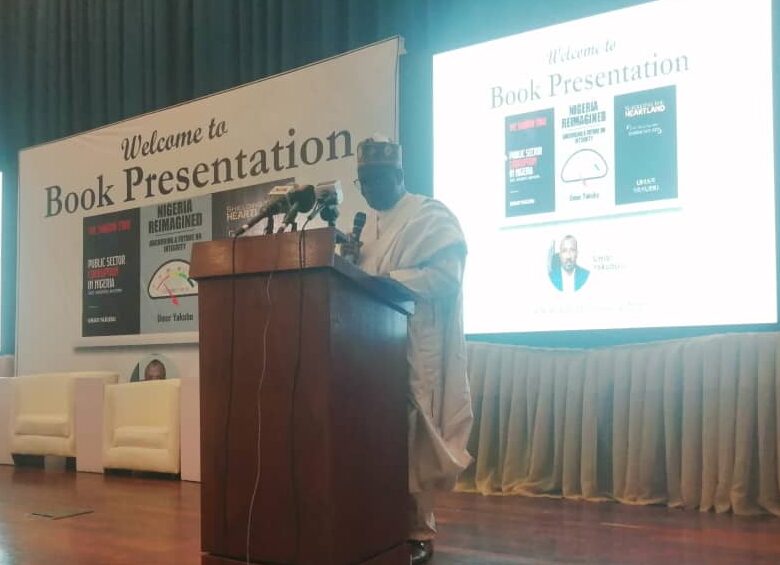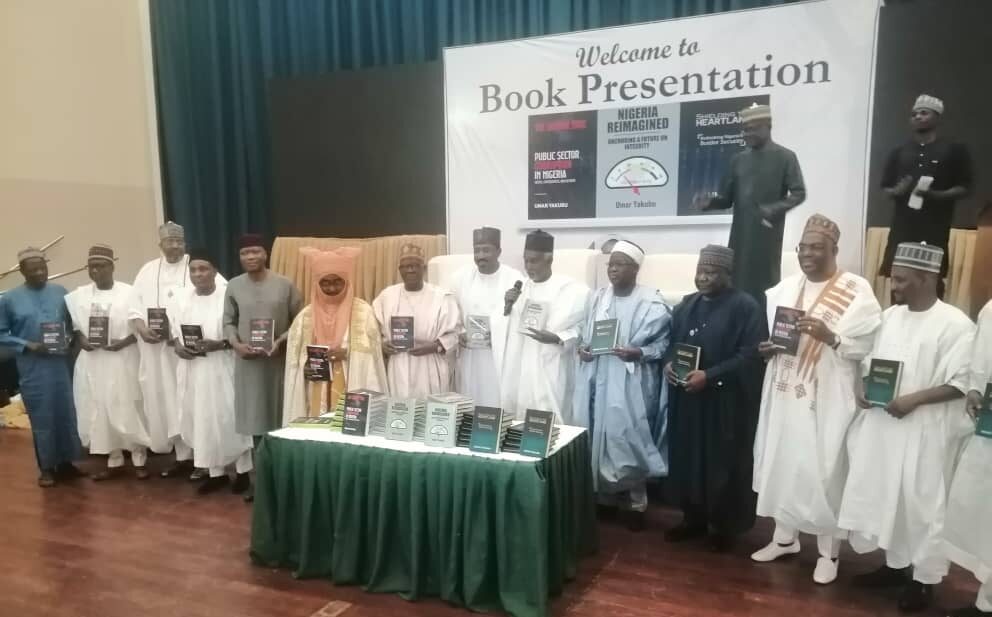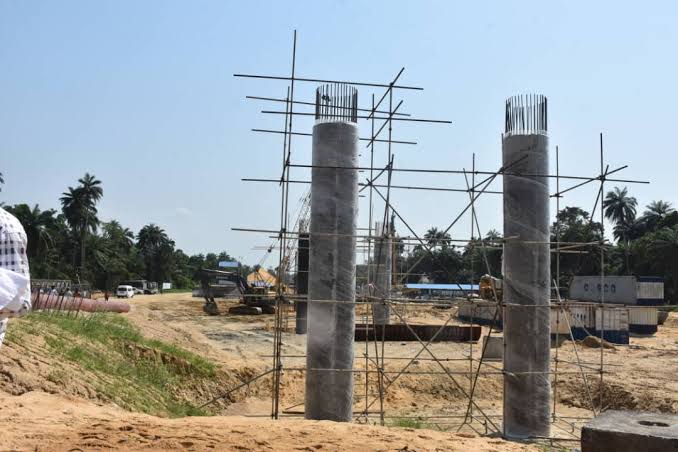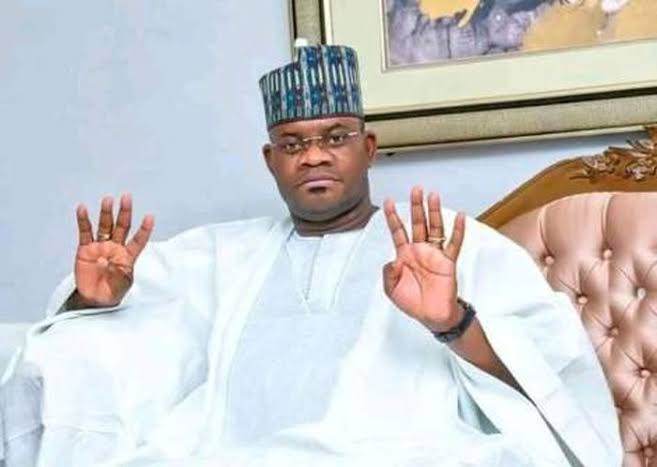By: Goodluck E. Adubazi, Abuja.
Elder statesman and former Chief of Staff to the President, Prof. Ibrahim Agboola Gambari, led a gathering of scholars, diplomats, and policymakers at the Musa Yar’Adua Centre in Abuja for the public presentation of three groundbreaking books by reform advocate Dr. Umar Yakubu.
The books — The Shadow State: Public Sector Corruption in Nigeria, Nigeria Reimagined: Anchoring a Future on Integrity, and Shielding the Heartland: Rethinking Nigeria’s Border Security — were described by Prof. Gambari as “vehicles of hope and calls to action” that offer Nigeria “a roadmap to renewal.”
“At over 80, everyone looks young to me — but Umar Yakubu is not only young, he is vibrant, humble, and audacious,” Gambari said. “His courage to speak truth to power is exactly what Nigeria needs.”
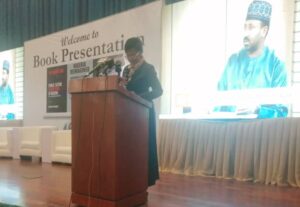
Prof. Gambari highlighted Yakubu’s fearless critique of systemic corruption, his advocacy for ethical governance, and his proposal for a national border security agency as examples of “bold thinking and practical patriotism.”
Dr. Umar Yakubu’s literary trilogy presented on Friday paints a sweeping picture of Nigeria’s governance challenges — and possible redemption.
In The Shadow State, Yakubu exposes the dark machinery of corruption, tracing how elite networks and weak institutions have drained the country’s development potential. He notes that corruption could cost Nigeria up to 37% of its GDP by 2030 if unchecked.
In Nigeria Reimagined, Yakubu shifts from diagnosis to vision, proposing a future rooted in integrity, merit, and efficiency. He argues that good governance must replace cynicism if Nigeria is to fulfill its potential as one of the world’s most populous nations by 2050.

The third book, Shielding the Heartland, dissects Nigeria’s porous borders and advocates for a dedicated National Border Security Agency, separate from Customs and Immigration, to manage both security and economic threats.
“You can’t ask revenue collectors to secure the borders,” Yakubu told journalists. “We need a focused institution that sees border management as a national priority, not a revenue source.”
“Nigeria’s Future Depends on Integrity and Unity”, Gambari stated.
During his keynote, Prof. Ibrahim Gambari called for a national recommitment to unity and accountability, warning that Nigeria’s survival as a sovereign nation depends on both.
“By 2050, Nigeria will be the third most populous country in the world — but population alone will not make us great,” he said. “Only integrity, unity, and prosperity will.”
He commended Dr. Yakubu’s courage in proposing capital punishment for corruption , a controversial idea modeled on policies in China and Singapore, but said “real enforcement of existing laws may be a more sustainable path.”
Gambari also recounted a famous exchange between former President Buhari and ex-UK Prime Minister David Cameron, who once labeled Nigeria “fantastically corrupt.” Buhari’s response, Gambari recalled, was telling:
“I don’t need an apology, I need our stolen money returned.”
“Ambassador Nworgu, stated: “Fighting Corruption, Building Integrity, Securing Borders, Three Pillars for a Stronger Nigeria”
Opening the event, Ambassador Angela Nworgu, Chairperson of the Centre for Fiscal Transparency and Public Integrity, praised Dr. Yakubu’s work as a “masterclass in public reform.”
“These three books are not just intellectual exercises,” she said. “They are blueprints for rebuilding Nigeria on the pillars of integrity, accountability, and security.”
She lauded the collaboration between Premium Times Books and Safari Books in publishing the works, noting that the launch reflects “a renewed national appetite for reform-driven dialogue.”
“Author Umar Yakubu, noted ‘Nigeria Can Do Better, We Just Need the Will’”
Speaking to journalists at the event, Dr. Umar Yakubu explained his motivation for writing the three-volume series.
“I was inspired to write because I believe Nigeria can do better,” he said. “Many countries that were on the same level as us in 1960 have advanced, while we’re still grappling with leadership, governance, and corruption issues.”
Yakubu emphasized that his work is not merely academic but practical, proposing concrete reforms such as the reduction of redundant government agencies, introduction of efficiency measures, and the use of technology to reduce waste.
“It’s not about having more agencies,” he said. “It’s about making the existing ones efficient and accountable.”
The presentation of Dr. Umar Yakubu’s trilogy drew an audience of policymakers, academics, and civil society leaders eager to debate Nigeria’s path forward.
Each of the books, dealing with corruption, integrity, and security, tackles a facet of Nigeria’s governance puzzle. Together, they form what Prof. Gambari described as “a comprehensive framework for transformation.”
The event ended with a call to action for policymakers to translate ideas into implementation.
“Dr. Yakubu has given us the blueprint,” said Ambassador Nworgu. “It’s now up to Nigeria’s leaders to build the house.”



